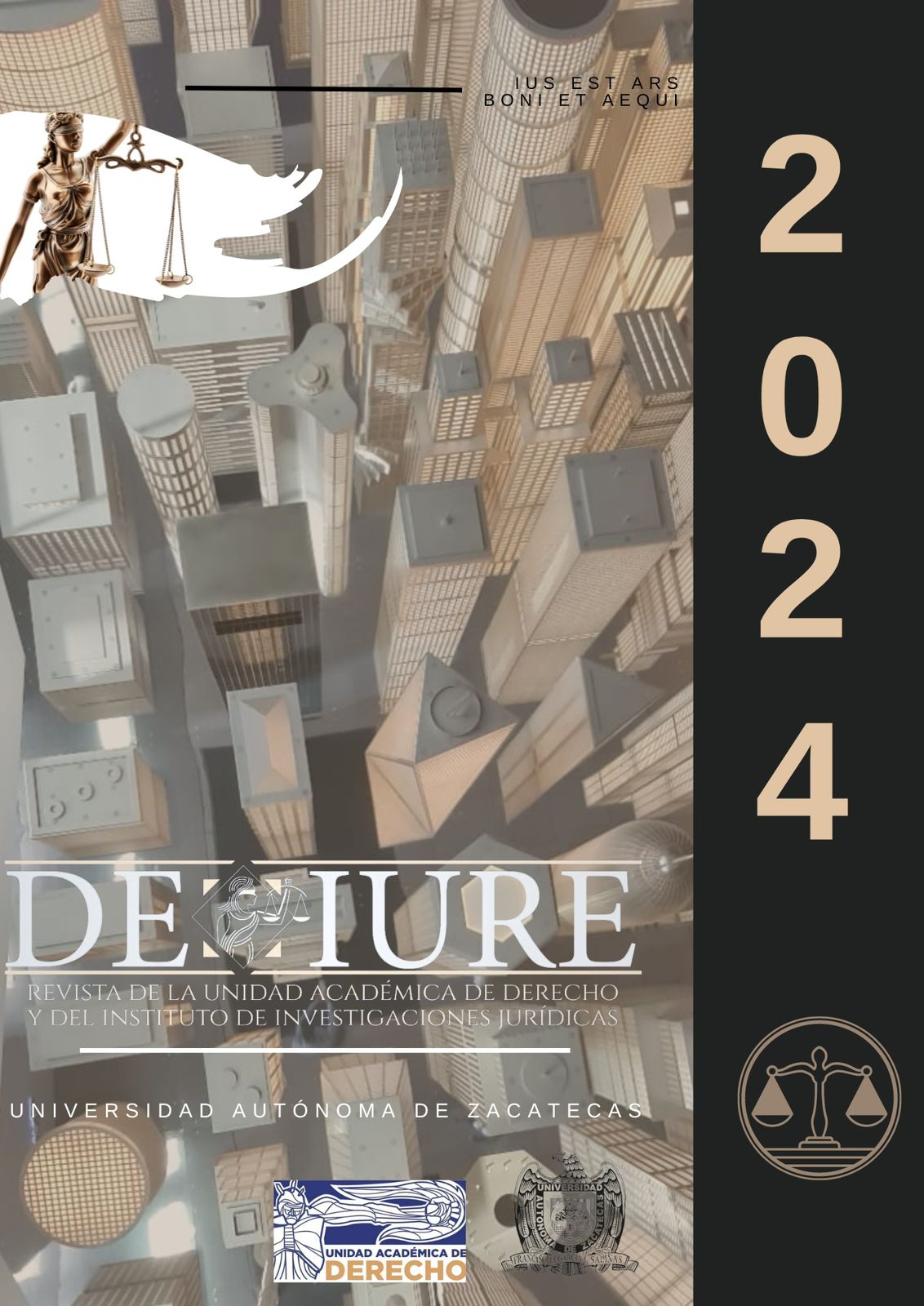Some notes on reality from a constructionist vision
Published 2024-12-30
Keywords
- reality, social constructionism, social object, knowledge, truth
How to Cite
Abstract
The objective of this article is to try to answer the following question: does reality suppose an existence independent of the individual? Ontological realism affirms this, while social constructionism places this affirmation in the dock. The thesis of this article, based precisely on social constructionism, is that reality is about the individual, because it is he who creates it and gives meaning. The two realities proposed by Elias (1990) will be reviewed. The first considers the individual as the end of the social process, with society being only the means for the subject to achieve himself; In the second, the individual turns out to be the means, with society being the end par excellence. Next, the characteristics of physical objects immersed and their empirical relationship with social phenomena are described. The discussion is about whether objects exist when the individual does not perceive them. Then, the reason for the supposed validity of knowledge and its relationship with reality is described. It is concluded that the object and reality exist when the individual perceives them, that is, as soon as he creates them.
Downloads
References
Campero, M. B. (2017): “Un individuo-sujeto. El yo como una unidad compleja”, en Revista de Filosofía, vol. 42, núm. 1, pp. 135-151. doi: http://dx.doi.org/10.5209/RESF.55453
Celis, R. y Rodríguez, M. (2016): Constructivismo y Construccionismo Social en Psicoterapia. Una perspectiva crítica, Colombia, Manual Moderno.
Cromby, J. & Nightingale, D. (1999): What’s wrong with social constructionism?, pp. 1-16 In J. Cromby, & D. Nightingale, Social Constructionism Psychology: A critical analysis of theory and practice, Buckingham Open University Press.
de la Cruz, J. I. (1725): Poemas de la vnica poetisa americana, musa dezima, sor Juana Ines de la Cruz, España, Imprenta de Angel Pasqual Rubio.
Diderot, D. (2013): La religiosa, España, Akal.
Edley, N. (2001): “Unravelling Social Constructionism”, en Theory & Psychology, vol. 11, núm. 3, pp. 433-441.
Elias, N. (1990): La sociedad de los individuos. En M. Schroter (Ed.) y J. A. Alemany (Trad.), España, Ediciones Península.
Elkaim, M. (1996): Constructivismo, construccionismo social y narraciones. ¿En los límites de la sistémica?, en Perspectivas Sistémicas, núm. 42, pp. 3-5.
Ferrari, L. E. (2012): El construccionismo social y su apuesta: La psicología social histórica. www.bibliopsi.org/docs/carreras/obligatorias/CFG/social/robertazzi/Ferrari%20-%20El%20construccionismo%20social%20y%20su%20apuesta%20la%20psicologia%20social%20historica.pdf
Gergen, K. (2007): Construccionismo Social. Aportes para el debate y la práctica. En A. M. Estrada y S. Diazgranados (Eds.), Colombia, Universidad de los Andes. Centro de Estudios Socioculturales e Internacionales (CESO).
Gonzáles-Rey, F., Martínez, A. y Ramírez, T. (2019): Una mirada latinoamericana sobre la subjetividad y la psicología social: Conversación con Fernando Gonzáles Rey, en Quaderns de Psicología, vol. 21, núm. 3, pp. 1-12. doi: https://doi.org/10.5565/rev/qpsicologia.1589
Gralewski, M. (2011): The philosophical underpinnings of social constructionist discourse analysis”, en Lodz Papers in Pragmatics, vol. 7, núm. 1, pp. 155-171. doi: https://doi.org/10.2478/v10016-011-0007-4
Holbach (1982): Sistema de la naturaleza. I, España, Editora Nacional.
Ibáñez, T. (1990): Aproximaciones a la psicología social, España, Sendai Ediciones.
Ibáñez, T. (2001a): Municiones para disidentes, España, Editorial Gedisa S.A.
Ibáñez, T. (2001b): “¿Fondear en la objetividad o navegar hacia el placer?”, en Athenea Digital. Revista de Pensamiento e Investigación Social, núm. 000, pp. 31-37.
Ibáñez, T. (2001c): Psicología social construccionista, México, Universidad de Guadalajara.
Iñiguez, L. (2005): “Nuevos debates, nuevas ideas y nuevas prácticas en la psicología social de la era ‘post-construccionista’”, en Athenea Digital. Revista de Pensamiento e Investigación Social, núm. 8, pp. 0-7.
López-Silva, P. (2013): Realidades, construcciones y dilemas. Una revisión filosófica al construccionismo social”, en Cinta de Moebio. Revista de Epistemología de Ciencias Sociales, núm. 46, pp. 9-25. doi: http://dx.doi.org/10.4067/S0717-554X2013000100002
Magnabosco, M. (2014): “El construccionismo social como abordaje teórico para la comprensión del abuso sexual”, Revista de Psicología, vol. 32, núm. 2, pp. 220-242.
Marco Aurelio (2019): Meditaciones, R. Bach (Trad.), España, Editorial Gredos.
Miller, G & Holstein, J. A. (2017): Reconsidering Social Constructionism, pp. 5-24. In G. Miller, & J. A. Holstein. Reconsidering Social Constructionism: Debates in social problems theory, USA, Routledge.
Ospina-Alvarado, M. C. (2018b). Retomando la experiencia de la línea de investigación en construcción social del niño y la niña: Familia y otros contextos relacionales, pp. 35-54. En M. C. Ospina-Alvarado, Construcción social de niños y niñas, Colombia, Centro Internacional de Educación y Desarrollo Humano (CINDE).
Ospina-Alvarado, M. C. (2018a): Bases conceptuales de la perspectiva sistémica en el construccionismo social para comprender a los niños, las niñas y las familias, pp. 57-98, En M. C. Ospina-Alvarado, Construcción social de niños y niñas, Colombia, Centro Internacional de Educación y Desarrollo Humano (CINDE).
Santiago, J. (2015): “La estructura social a la luz de las nuevas sociologías del individuo”, en Revista Española de Investigaciones Sociológicas, núm. 149, pp. 131-150. doi: http://dx.doi.org/10.5477/cis/reis.149.131
Searle, J. R. (1997): La construcción de la realidad social, España, Paidós.
Seguí, J. (2017): Construccionismo Social en España. Si perdemos la crítica y la rebeldía, lo perdemos todo, pp. 41-66, En E. F. Rasera, K. Taverniers y O. Vilches-Álvarez, Construccionismo Social en acción: Prácticas inspiradoras en diferentes contextos, España, Taos Institute Publications/WorldShare Books.
Sexto Empírico (1993). Esbozos pirrónicos, A. Gallego y T. Muñoz (Trads.), España, Gredos.
Torres, J. (2011). “Individuo, estructura y práctica social: Tres debates en ciencias sociales”, en Espiral, Estudios sobre Estado y Sociedad, vol. 18, núm. 50, pp. 35-63.
Tuñón, J. (2017): “Porque Clío era mujer”, en GénEr♀♂s, núm. 5, pp. 53-60.
Turner, S. (1998): The limits of Social Constructionism, pp. 109-120, In I. Velody, & R. Williams, The politics of Constructionism, London, SAGE Publications.
Venegas, M. (2017): “Devenir sujeto. Una aproximación sociológica”, Convergencia. Revista de Ciencias Sociales, núm. 73, pp. 13-36.
Weinberg, D. (2019): Social Constructionism, varieties of. https://methods.sagepub.com/base/download/FoundationEntry/social-constructionism-varieties-of
Wong, K. T. (2018): New interpretations of giftedness in early years: Looking through the lens of Social Constructionism (Doctoral dissertation), University of Canterbury, New Zealand.


